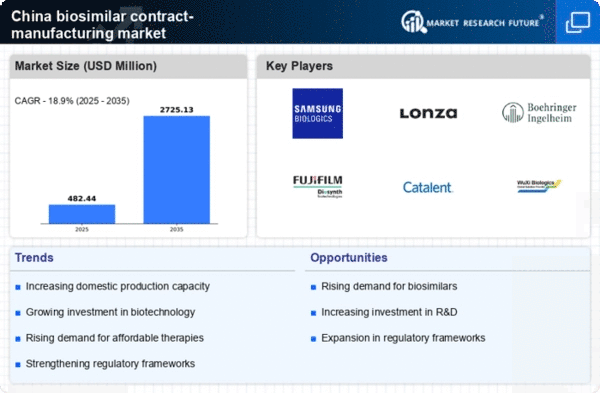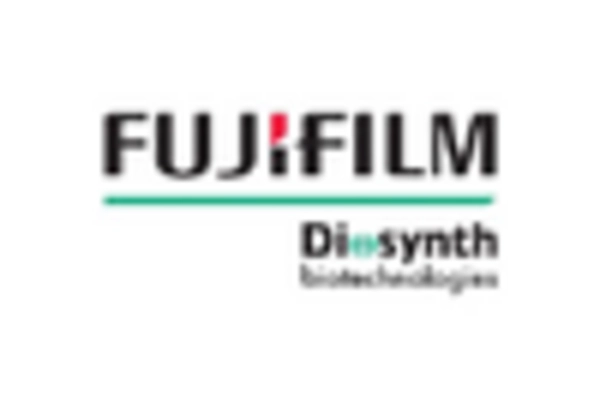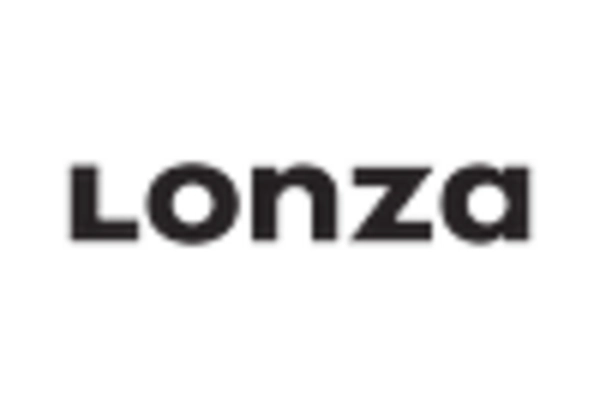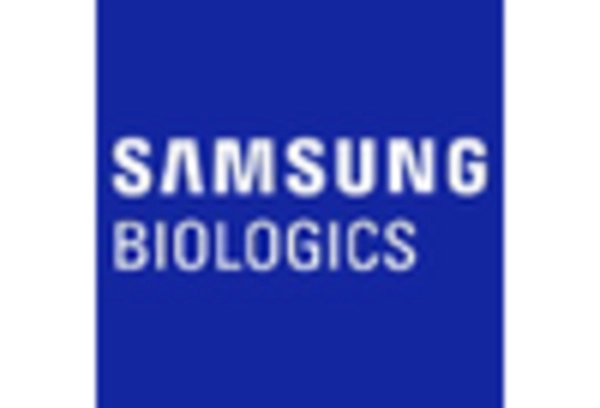Growing Aging Population
The growing aging population in China is a significant driver for the biosimilar contract-manufacturing market. With an estimated 300 million individuals aged 60 and above by 2025, the demand for biologic therapies is expected to surge. Older adults are more susceptible to chronic diseases, necessitating effective and affordable treatment options. Biosimilars, which offer similar efficacy to their reference products at lower costs, are likely to become increasingly popular among healthcare providers. This demographic shift suggests that the biosimilar contract-manufacturing market will experience heightened activity as manufacturers strive to meet the needs of this expanding patient population. The market could see a growth rate of approximately 15% annually, driven by the increasing prevalence of age-related health conditions.
Supportive Government Policies
Supportive government policies play a crucial role in shaping the biosimilar contract-manufacturing market. The Chinese government has implemented various initiatives aimed at promoting the development and adoption of biosimilars. For instance, the introduction of the National Medical Products Administration (NMPA) guidelines has streamlined the approval process for biosimilars, making it easier for manufacturers to enter the market. Additionally, the government has established financial incentives for companies investing in biosimilar production, which could potentially enhance the market's growth. As of 2025, it is estimated that around 30% of new biologics approvals in China will be for biosimilars, indicating a robust policy environment that favors the expansion of the biosimilar contract-manufacturing market.
Increasing Healthcare Expenditure
The rising healthcare expenditure in China is a pivotal driver for the biosimilar contract-manufacturing market. As the government allocates more funds towards healthcare, the demand for affordable treatment options intensifies. In 2025, healthcare spending in China is projected to reach approximately $1 trillion, reflecting a growth rate of around 10% annually. This increase in expenditure is likely to encourage healthcare providers to seek cost-effective biosimilars, thereby boosting the contract-manufacturing sector. Furthermore, the emphasis on universal healthcare coverage in China may lead to a greater reliance on biosimilars, as they offer similar therapeutic benefits at reduced costs. Consequently, the biosimilar contract-manufacturing market is expected to expand as manufacturers align their production capabilities to meet this growing demand.
Increased Focus on Research and Development
Increased focus on research and development (R&D) within the biopharmaceutical sector is a vital driver for the biosimilar contract-manufacturing market. Companies are investing heavily in R&D to develop new biosimilar products that can address unmet medical needs. In 2025, R&D spending in China's biopharmaceutical industry is projected to reach approximately $50 billion, reflecting a commitment to innovation. This investment is likely to result in a surge of new biosimilar candidates entering the market, which will require robust contract-manufacturing capabilities. As firms seek to expedite the development process and bring products to market efficiently, the biosimilar contract-manufacturing market is expected to benefit from increased demand for specialized manufacturing services.
Rising Competition Among Biopharmaceutical Companies
Rising competition among biopharmaceutical companies is another key driver influencing the biosimilar contract-manufacturing market. As more companies enter the biosimilar space, the need for efficient and cost-effective manufacturing solutions becomes paramount. This competitive landscape encourages innovation and collaboration, leading to advancements in manufacturing technologies and processes. In 2025, it is anticipated that the number of biosimilar products in the Chinese market will exceed 100, prompting contract manufacturers to enhance their capabilities to meet diverse client needs. The pressure to reduce production costs while maintaining quality standards may drive contract manufacturers to adopt more sophisticated technologies, thereby fostering growth in the biosimilar contract-manufacturing market.

















Leave a Comment